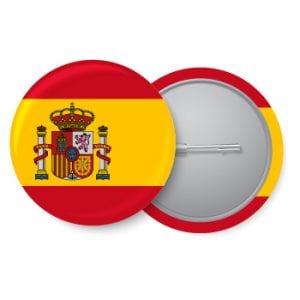Top 20 Spanish Jokes

Are you learning Spanish? If yes, did you come across any Spanish jokes? Many people are curious about this interesting topic. So, let’s explore and learn here some Spanish with humor!
For noobs, in Spanish-learning language, it is quite tough to learn the language and have good humor. Spanish speakers often find joy in the rich cultural exchange that comes with connecting with people who share their language and heritage. Psychologists say that every individual has a different personality in different languages. So, how can a person have a good personality in a different language?
What are Spanish Jokes?
Chistes are a great way to practice any language. Through jokes, it is easy to learn the target language in addition to enhancing your humor. Jokes are known as Chistes in Spanish. Every language has its own type of jokes. Likewise, there are a lot of funny jokes in Spanish through which beginners can have easy learning. Furthermore, you can get language learning through the jokes and it’ll make you laugh as well.
Learning the Spanish language is a process with a lot of grammar, vocabulary, conjunctions, etc., so to make it easy and memorable, Punny jokes can be a great source. Moreover, there is a wide variety of jokes through which learning can be possible. For instance, practical jokes, bad jokes (which are hilarious), jokes for kids, Cheek jokes, some are called Spanish Dad jokes on the internet, and a lot more.
Importance of Jokes
So, making funny jokes in Spanish is quite hard. But it is also a great way to spend time with others. If I say a joke and people laugh it can be a healthy exercise for me as well as for people laughing because laughing is therapy.


So, if you have tons of good jokes in your pocket, you can easily make friends in a gathering due to your impressive humor and personality. Jokes are beneficial in learning a language because you don’t have to memorize much, but they work in plenty of situations. Check out our new post about Struggling Translators With Humor Translations!
Top 20 Spanish Jokes
There are plenty of funny jokes in Spanish. But when we translate them into English, they barely make sense but they are very funny in the Spanish language. Let’s take a look at some of the hilarious jokes that had me laughing out loud.
-
The Lazy fish:
¿Qué hace el pez perezoso? ¡Nada!
It means, what does a lazy fish do? Nothing! Or he swims!
So, this joke means that a lazy fish does not do anything except swimming. Here, nada has two meanings. One is nothing, and the other is used for third-person singular form, i.e., to swim.
-
The Dancing Bee:
¿Qué hace una abeja en el gimnasio? Zumba!
It means, what does a bee do at the gym? Zumba!
In this joke, Zumba means the Buzz sound of a bee.
-
The Nightmare hotel:
¿Cómo se llama un hotel muy desagradable? ¡Una posadilla!
It means what you call a very bad hotel, a hotel!
This joke means that how can be called a bad hotel, a posadila means a nightmare.
-
A negative Fish:
¿Cómo se llama el pez más negativo? ¡Pesimista!
It means, what do you call a negative fish? A pessimist.
This joke means that a negative fish is called a pessimist, who doesn’t want to be involved with anyone.
-
A beach saying hello:
¿Que dice el mar a la playa? ¡Ola!
It means, what did a beach say to the ocean? Hi!
In Spanish, Ola means wave, and Hola means hello. So this joke means beach say hi to the waves.
-
Lazy cows:
Cuáles son las vacas más perezosas? Vacaciones!
It means, what’s the laziest type of cow? A cow!
When we translate such jokes, they don’t make sense. But they do in the Spanish language. In Spanish, ‘vaca’ means cow, it is the same as the first two syllabus of vacations. That’s why they said vacations as the laziest cows. It’s ok if it didn’t make any sense. Let’s move ahead.
-
A laughing Orange:
¿Cuál es la fruta que más se ríe? La naranja, ja, ja, ja, ja…
Does it mean which fruit laughs the most? The orange, ha ha ha ha
In the Spanish language, the word ‘ja’ means ‘ha’. As in Spanish, orange is naranja so this joke means that orange has ‘ja’ at the end. They are laughing a lot.
-
The angry Bear:
¿Cómo se llama un oso enfadado? ¡Furioso!
It means, what do you call an angry bear? Furious!
This joke means that ‘oso’ in Spanish means bear. And furious is ‘Furioso.’ So, altogether, it means Furioso, an angry bear.
-
The talking roof:
¿Qué le dijo un techo a otro techo? Techo de menos.
It means, what did one roof say to the other roof? I miss you.
The Spanish word ‘ techo’ means roof, which sounds very similar to ‘ te echo’. And ‘te echo menos’ is a way of saying ‘ I miss you’.


-
A sincere 1:
¿Que dijo el número 1 al número 10? Para ser como yo debes ser sincero.
It means, what did the 1 say to the 10? To be like me you have to e sincere.
In Spanish, the word ‘sincero’ means sincere. It is very similar to the word ‘sin cero,’ which means ‘without zero.’ So it means to be like 1, 10 has to lose its 0.
-
The ruined Ruana:
¿Cómo se llama una ruana estropeada? ¡Una ruina!
It means, what do you call a ruined ruana? A ruin!
Ruana is a type of poncho that people wear in South Africa. In Spanish, ruino means ruined or damaged. So a damaged or ruined ruana can be a ruin. It made me laugh.
-
The last animal on Noah’s ark:
¿Cuál fue el último animal en entrar al arca de Noé? El del-fín.
It means what was the last animal to enter Noah’s ark? A dolphin.
So, in Spanish, the dolphin is called ‘Delfin’. This word is very similar to the word ‘del-fin’, which means at the end’. So as dolphins are del-fins, they might board at on Noah’s ark.
-
Where did the wine come from?
¿Vino de la casa, señor? ¿Y a usted por qué le importa de dónde vengo?
It means house wine, sir; why does it matter to you where I come from?
In Spanish, vino means “wine,” but it’s also a form of the verb venir, which means “to come.” Vino de la casa means “house wine”, but it can also mean “did you come from the house?”. Therefore, this is why the guest is offended.
-
The smelling salt:
Cual es la sal que más mal huele? La sal pargatas.
It means, what type of salt smells the worst? The ‘pargatas’ salt.
-
The clock’s brand:
La semana pasada me compré un reloj. ¿Qué marca? ¡La hora!
It means, last week I bought myself a watch. What brand? The time!
In Spanish, ‘que marca’ has two meanings. ‘The brand’ and ‘ What does it indicate?’. So, there can be a misunderstanding in this joke.
-
The talking bread:
¿Cómo haces para que un pan hable? Lo pones en agua toda la noche y a la mañana siguiente ya está blando.
It means, how do you get bread to talk? Put it in the water all night, and the next day it will be soft. Here, the words ‘it’s soft’ and ‘it’s talking’ in Spanish sound similar. Hence, this is the reason for this joke.
-
Belted eight:
¿Qué le dice el cero al ocho? Me gusta tu cinturón
it means, what does a zero say to the eight? I like your belt.
Zero and eight are similar. Hence, only 8 have a belt on it.
-
The elf-abet:
¿Qué aprenden los elfos en el colegio? El elf-abeto.
It means, what do elves learn in school? The elf-abet.
Elfabet and elf-abet are two familiar words. Furthermore, meaning the elf and alphabet. That is why we might say elves leaning in schools as elf-abet.
-
An ill computer:
¿Por qué fue el ordenador al médico? – Porque tenía un virus
It means, why did the computer go to the doctor? Because it had a virus.
Ultimately, this made me laugh out loud.
-
A wet towel:
¿Qué es lo que más se moja cuanto más seco está? Una toalla.
It means what gets wetter the more it dries. A towel.
So, did these jokes make you laugh and help you in your Spanish?





